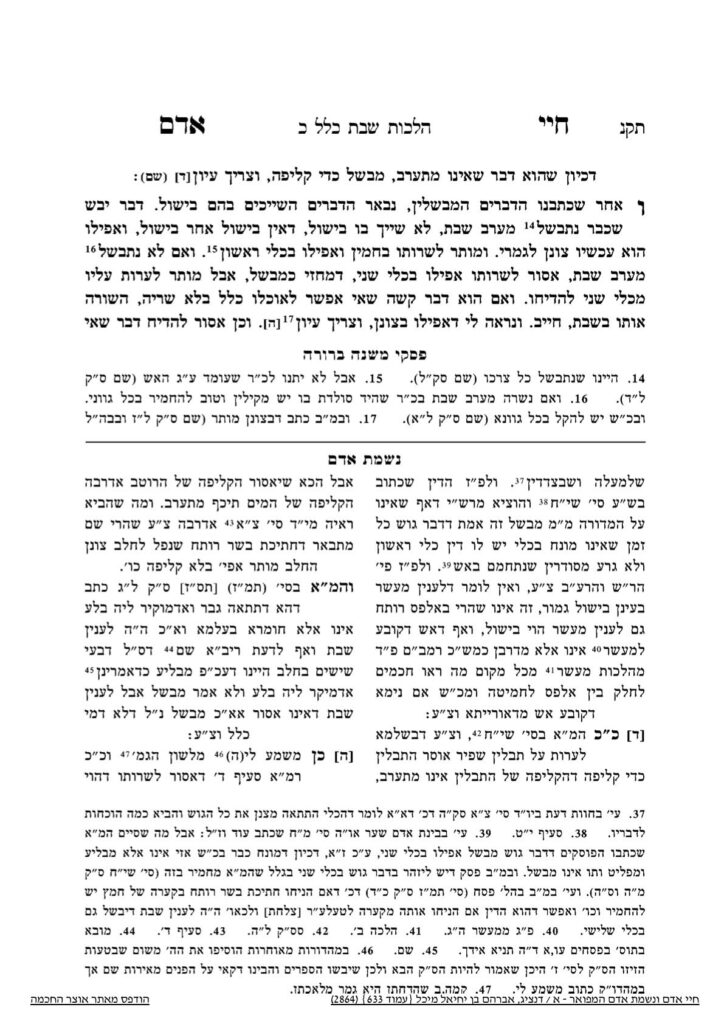We are continuing in siman 7, where the Chayei Adam discusses putting a davar yaveish into a kli rishon which then dissolves into a liquid. Yesterday, we learned the first opinion brought by the Chayei Adam, which was that the food is considered a davar yaveish, and therefore muttar to place in the kli rishon. Today, we will learn the second opinion.
The Chayei Adam writes that the second opinion is that a davar yaveish which dissolves in a kli rishon will be considered a davar lach, and it will be assur to reheat it. According to this opinion, it would only be muttar to add sugar (or instant coffee, etc.) into a kli sheini. Even though it is fully cooked, since it is considered a liquid, it is looked at as getting cooked again.
The Chayei Adam adds that even performing irui kli rishon would be assur, because irui cooks kdei klipah, which would effectively dissolve and cook all of the sugar. Rather, one needs to pour the hot water first into a kli sheini, and then add the sugar to the cup.
The Chayei Adam continues, and writes that the Panim Meiros and Magen Avraham follow the first opinion, that it is muttar. However, there is an opinion which holds it is assur. Therefore, it is lechatchilla appropriate to refrain from placing a davar yaveish which will liquify into a davar lach into a kli rishon. However, in a case of significant need, it is muttar to rely on the opinion that the food is considered a davar yaveish and is muttar to heat. Certainly, if one did so, it is permitted to benefit from the food, because there is an argument that it is completely muttar.
Similarly, there is an issue with placing a pastida next to the fire, because it melts the fat inside and then (re)cooks it.
Practically, one should be machmir not to place instant tea, coffee, sugar or other such foods which were previously cooked into a kli rishon; however, if they did so, it is muttar to drink it.
Although we have learned that we are machmir that kalei habishul do cook in a kli sheini, and these items would certainly be considered kalei habishul, we do not combine both chumros, so one does not need to be machmir about kalei habishul over here, as we will consider them cooked.
Summary
- It is a machlokes whether a food which begins as a fully cooked davar yaveish but which will liquify when one recooks it is considered a davar lach or a davar yaveish. The first opinion holds it is considered a davar yaveish, since we follow the time at which it was placed next to the source of heat. The second opinion holds it is considered a davar lach, since we follow the outcome.
- Practically, lechatchilla one should be machmir and consider it a davar lach. Bedieved, and in times of necessity, one can be meikil to consider it a davar yaveish.
- If one did liquify the food, it is not assur to benefit from on Shabbos.
- One may place these items in a kli sheini.



